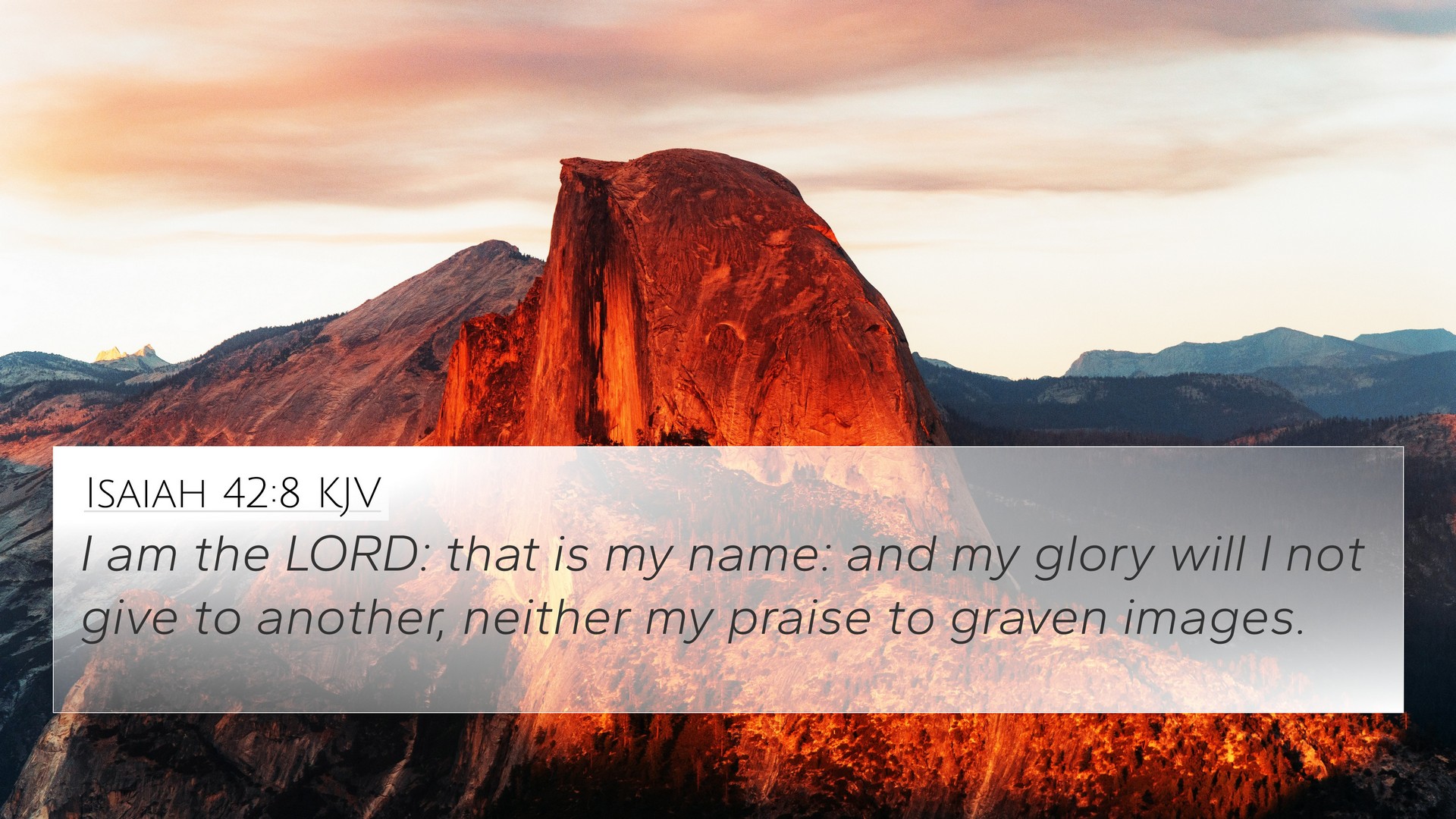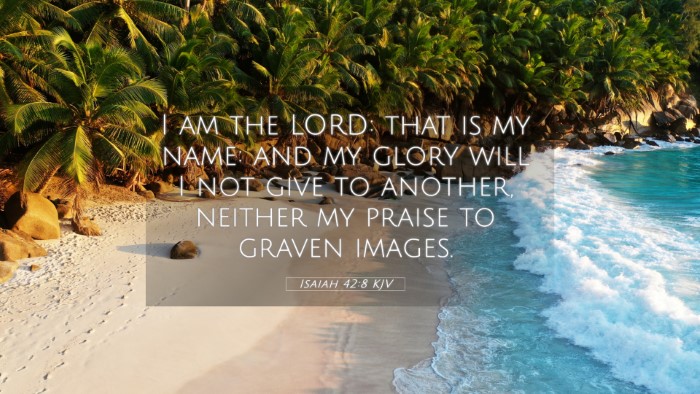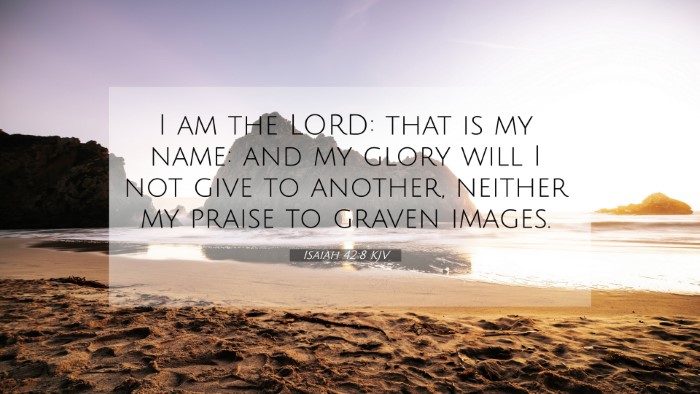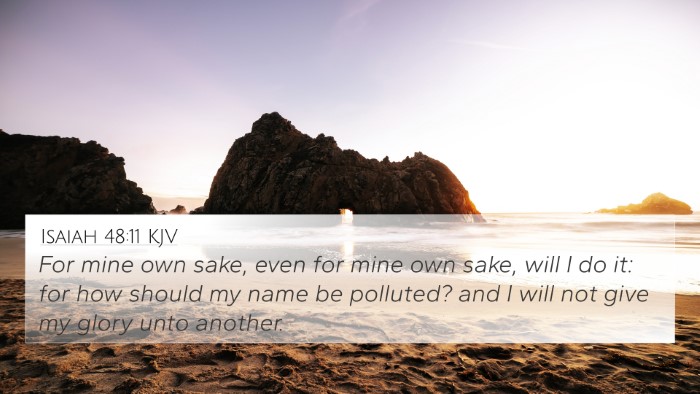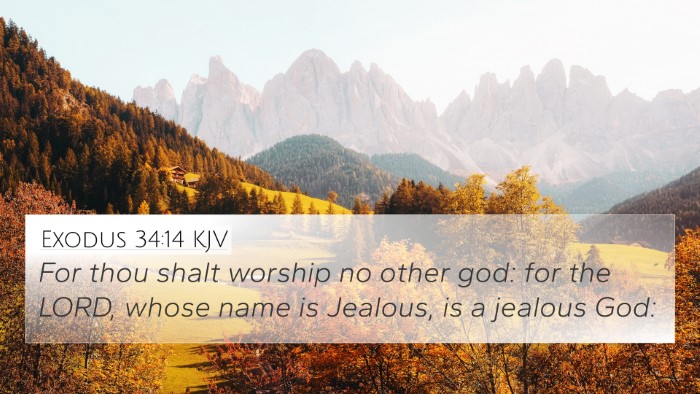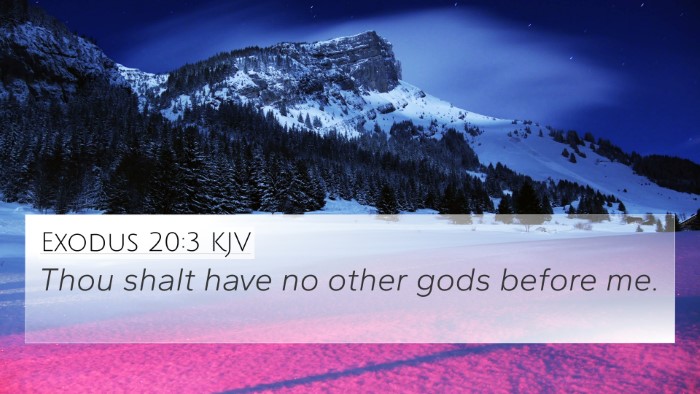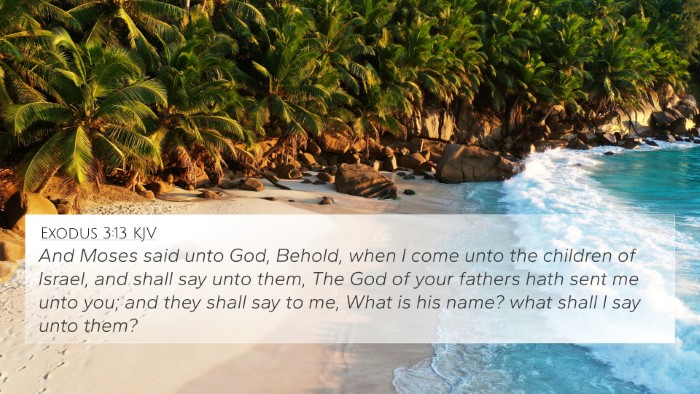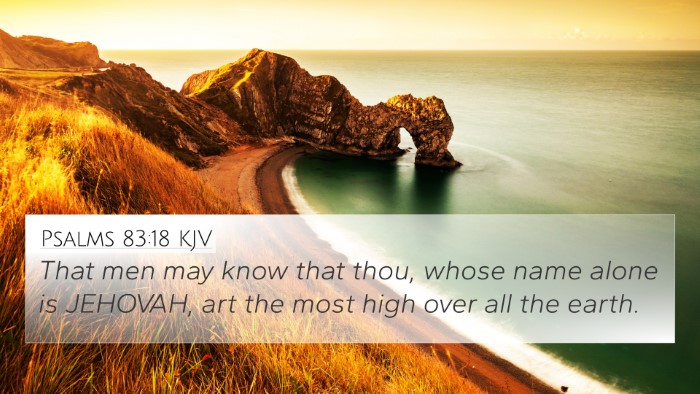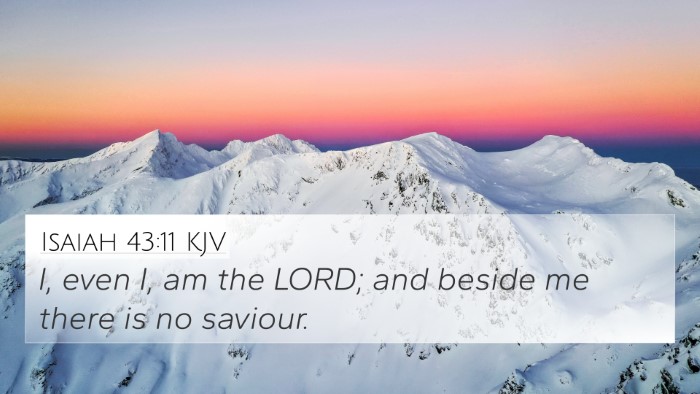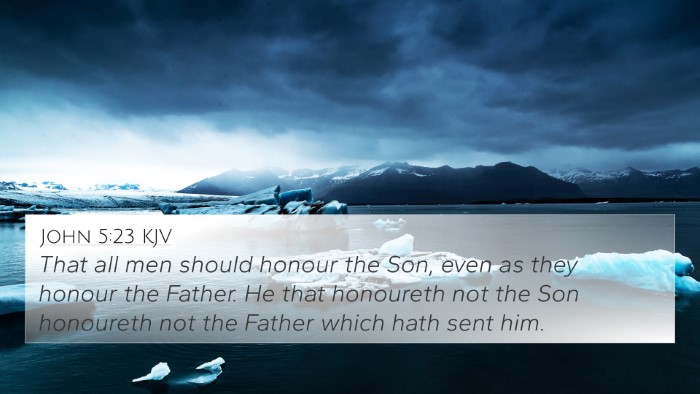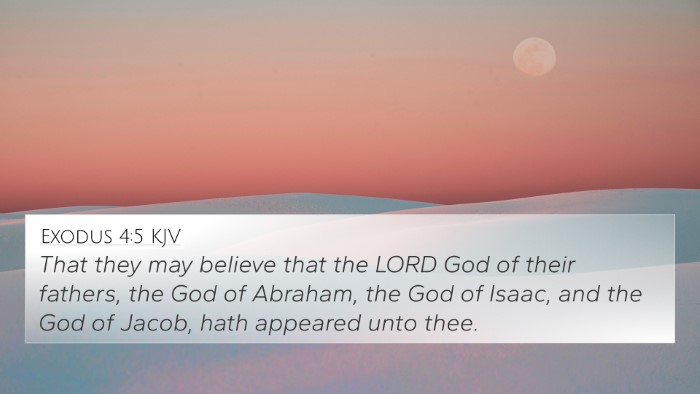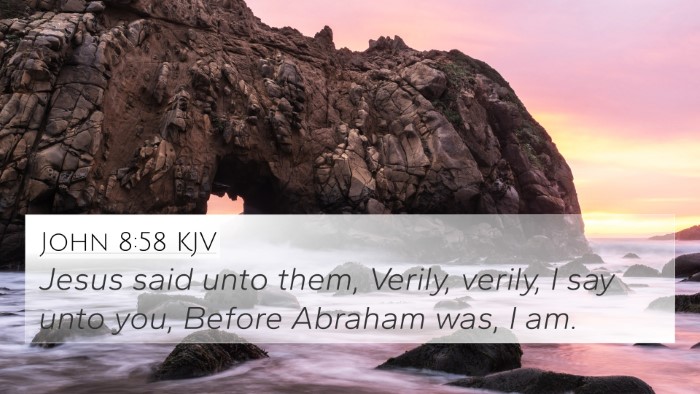Isaiah 42:8 - Verse Meaning Summary
Isaiah 42:8 states, "I am the LORD: that is my name: and my glory will I not give to another, neither my praise to graven images." This verse emphasizes God's unique and unparalleled glory, distinguishing Him from idols and false gods.
Key Themes
- The Uniqueness of God: The verse establishes that the Lord's glory and name are singular, underscoring that there should be no comparison with other entities.
- Rejection of Idolatry: The verse clearly rejects the idea of sharing divine glory with images, bringing focus to the futility of idol worship.
- God's Sovereignty: The declaration "I am the LORD" underscores His sovereign authority over all creation.
Public Domain Commentary Insights
- Matthew Henry: Henry emphasizes that God's name signifies His essence and nature. In this verse, He declares His exclusive right to glory and worship, rejecting any form of idolatry. Such a declaration serves both as a warning against the futility of relying on man-made images and as an affirmation of trust in the Lord alone.
- Adam Clarke: Clarke points out that "my glory will I not give to another" speaks to God's refusal to share divine attributes. He highlights the contrast between the Creator and creation, signifying that any attribution of glory to idols negates their true lifelessness compared to the living God.
- Albert Barnes: Barnes interprets God’s declaration as a definitive statement about His divine nature. He focuses on the theological implications of God being the ultimate source of glory, which cannot be transferred or diluted through idolatry.
Related Bible Verse Cross-References
- Exodus 20:3-5 - The commandments affirm the prohibition of idolatry and emphasize loyalty to God.
- Isaiah 40:18 - Questions the likeness of God to anything that can be graven or fashioned by human hands.
- Romans 1:22-23 - Discusses how people exchange the glory of the immortal God for images resembling mortal beings.
- Psalms 115:4-8 - Contrasts the living God with the lifelessness of idols made by man.
- Jeremiah 10:10-15 - Describes the living God in contrast to the foolishness of idol worship.
- Revelation 4:11 - Affirms that God alone is worthy of glory and honor.
- 1 Corinthians 10:14 - Encourages believers to flee from idolatry.
Thematic Connections and Understanding
Isaiah 42:8 is a profound revelation that connects deeply with the overarching theme of God’s sovereignty and the folly of idolatry throughout Scripture. This exact manner of observing God’s exclusivity can be traced in various other verses, creating a web of inter-Biblical dialogue.
The call to arms against the worship of images invites believers to reflect on the nature of their worship, contrasting the living God who commands their devotion with the dead idols of the world.
In a comparative Bible verse analysis, one can see how many of the prophets echoed a similar sentiment, showcasing God's demand for loyalty as a relationship based on truth, not merely ritual.
When you study these connections between Bible verses, you will find tools for deeper understanding, such as using a Bible concordance or a cross-reference Bible study guide to uncover more thematic Bible verse connections that speak to God’s unyielding claim on glory.
Application of Cross-Referencing in Bible Study
For those looking to engage further in scriptural cross-referencing, consider how each of the mentioned verses enrich understanding of Isaiah 42:8. This verse stands as a vertical link in the chain of divine truth that defines God's character and His expectations of His people.
When applying cross-referencing Bible study methods, one can discover the rich tapestry of themes that unite various biblical texts, and one may ask: "How do these verses connect?" or "What verses support the understanding of God’s nature?"
By recognizing these inter-Biblical dialogues, believers may grow in their faith and understanding of God's role within the entirety of scripture, ultimately fostering a more profound worship experience directed solely to Him.
